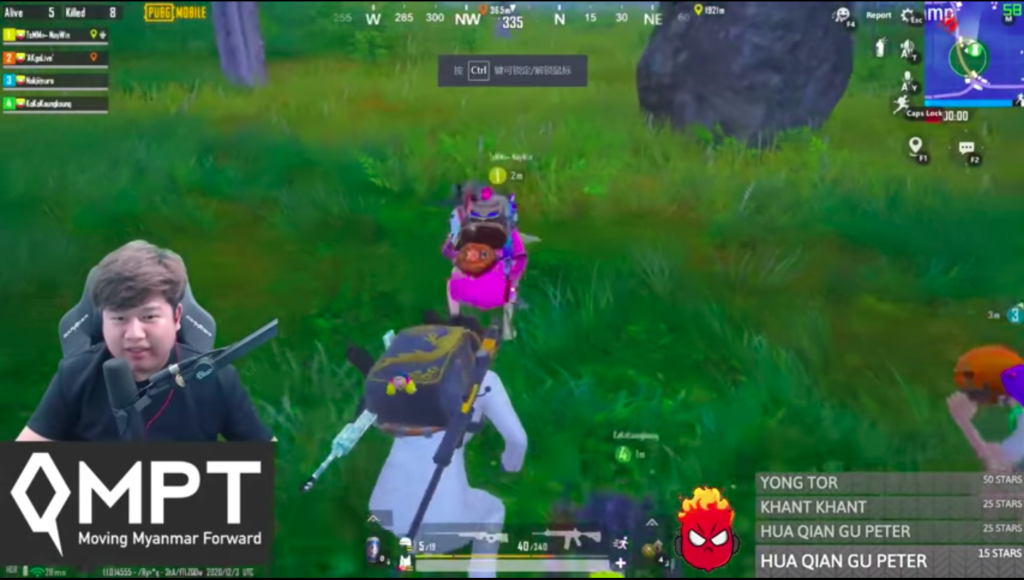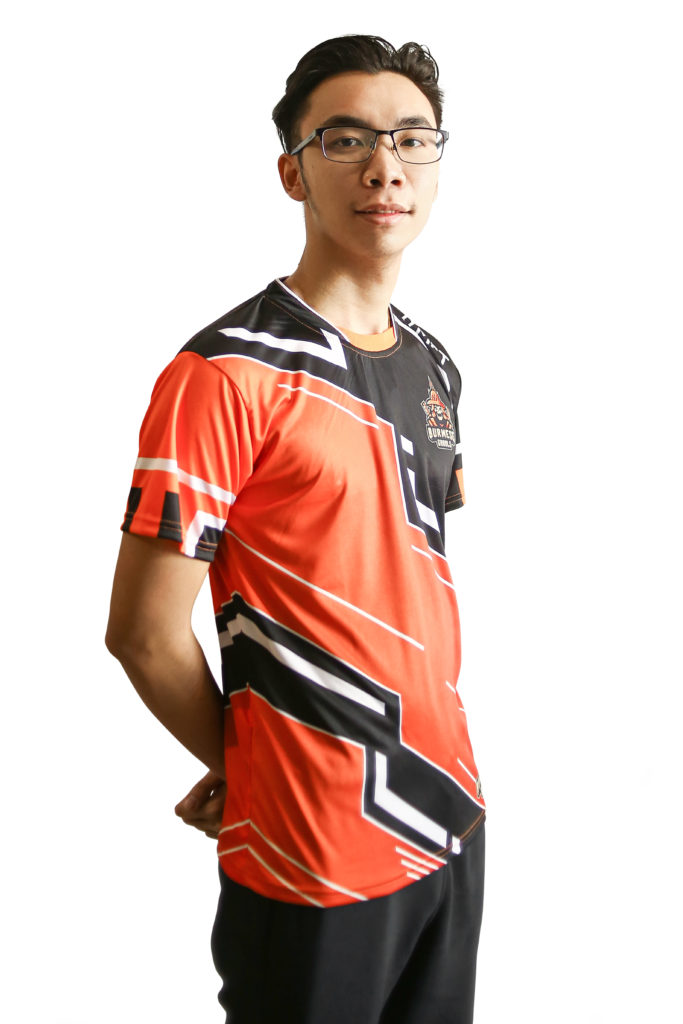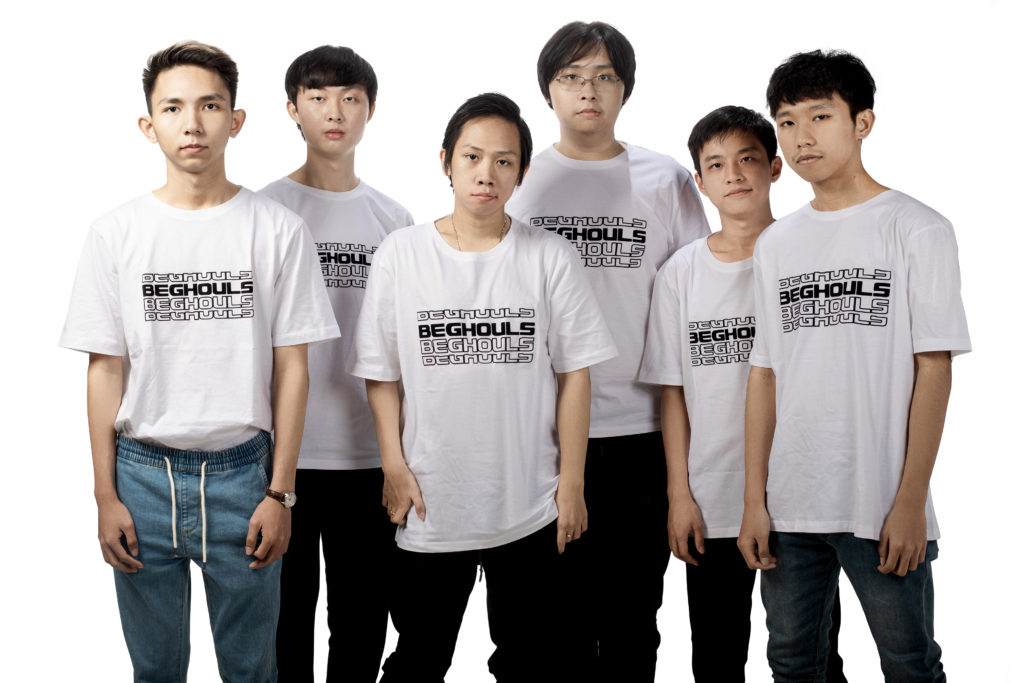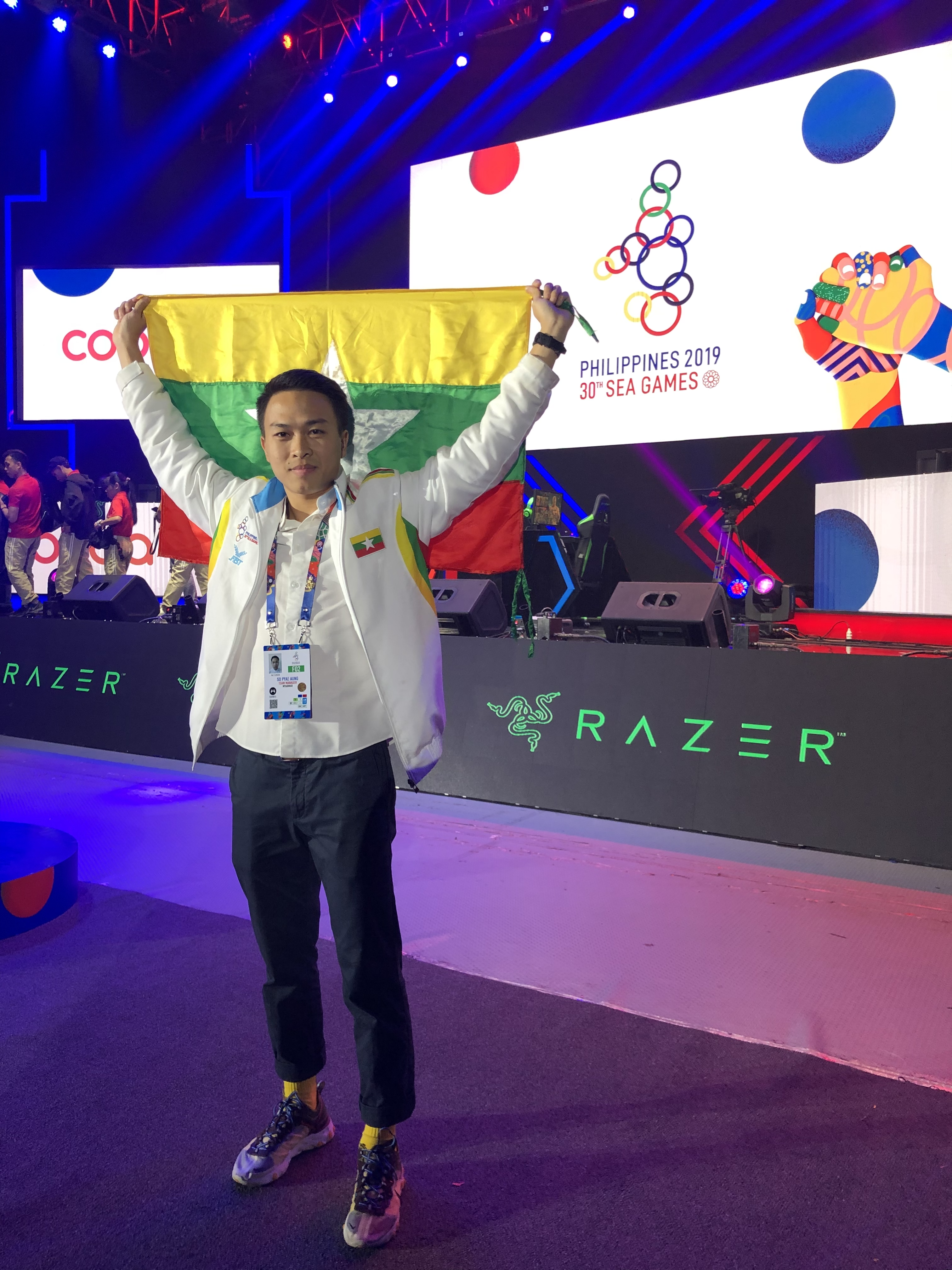Arkar Tun, also known by his Facebook page AKgoLive, is one of the most popular game streamers in Myanmar, with over 1.5 million subscribers on Facebook.
“Recently, I purchased another car for my wife and had a proper wedding reception. I’m living most of it so that people can see this as a decent career path,” the 26-year-old streamer told KrASIA. He is widely known in Myanmar, particularly by youngsters, for his PlayerUnknown’s Battlegrounds (PUBG) skills, but also for its witty banter and puns.
“My viewers once dared me that I wouldn’t shave my head and I instantly did it. It was a funny experience, but I had to stay bald for a while,” he said.
It would be unthinkable that just six years ago, Arkar Tun was working as a cleaner for his uncle’s construction firm. The Yangon-based gamer decided to turn his gaming enthusiasm for PUBG into a full-time career four years ago, after watching how streamers on Twitch monetize by sharing videos on the platform. Things have gone pretty well for him so far.
“We make money from our viewers, who mainly support us through Facebook gaming, via Stars, which is a form of digital currency. Advertising, sponsorship, and brand endorsements also constitute a part of my income,” Arkar Tun said.

“In the beginning, my team and I received lots of criticism and were looked down on by elderly people. Businesses were not trusting us enough to invest their advertisements on us, and so on,” he added.
With Myanmar e-sports teams recently making strides in regional tournaments, more and more Burmese youngsters, like Arkar Tun, have attempted to turn their virtual fun into promising careers, be it as streamers or e-sports players.
Yet, as the industry is still in the early stages, skepticism, weak digital infrastructure, few local tournaments, and insufficient support from the government and the private sector have prevented e-sports from becoming a career reality for many teenagers.
“The industry is quite new, yet growing very rapidly. With the rise of the digital age, and more access to e-sports facilities, gaming has become a sport where the younger generation can find their competitive spirit,” said Sopyae Aung, managing director of HOG Esports, an e-sports center and game organizer in Myanmar.
Sopyae Aung, who studied in Seattle, US, decided to drop out of college at the age of 24 and come back to Myanmar to open an e-sports center in 2017. HOG Esports has since become the biggest e-sport facility in Myanmar, certified by visual computing firm Nvidia. The center can host e-sports tournaments with up to 250 persons, Sopyae Aung said.
From virtual fun to a rewarding career
According to data from game market research firm Newzoo, Southeast Asia’s gaming and e-sports industry generated a revenue of USD 4.4 billion in 2019, with a year-on-year growth of 16%. The region’s audience for e-sports reached about 30 million at the end of 2019, up 22% from the previous year.
As e-sports are growing in popularity in the region, Myanmar is no exception. The country has been organizing a number of tournaments, such as the Mobile Premier League Myanmar Season 5, with prizes that can reach up to USD 55,000 for the winning team, usually composed of three to six players. These prizes are quite attractive for Burmese, as their average annual income per capita is around MMK 2 million (USD 1,500).
The prize pool usually comes from an array of stakeholders including sponsors, partners, tournament organizers, and game developers, Sopyae Aung explained. However, the prize size is mainly driven by commercial interest, he added, meaning that a market with bigger commercial interest will generate a bigger pool size. Prizes in Myanmar are comparatively smaller compared to other developed e-sports markets in the region such as the Philippines or Indonesia, where for similar tournaments winners can earn over USD 70,000.
However, Yangon-based e-sports team Burmese Ghouls, after winning the Mobile Premier League Myanmar Season 5, will have the chance to compete in the international semifinals of the event taking place from January 18 to 24 for a massive prize of USD 300,000.
“I started playing Mobile Legends in 2018 when my friends introduced me to the game at the campus cafeteria. He told me the game is fun. Later, I started playing solo, and then I became a professional player,” 25-year-old Wai Yan Myint, captain of Burmese Ghouls, told KrASIA.
His team is specialized in Mobile Legends: Bang Bang (MLBB), a multiplayer online battle arena (MOBA) blockbuster game published by Chinese video game developer Moonton, which is very popular in Southeast Asia. The title was also chosen as an official game for the first e-sports competition at the 2019 Southeast Asian Games, which were held in the Philippines from November 30 to December 11, 2019.

Kaung Myat San, vice president of the Myanmar Electronic E-sports Federation (MESF), an organization that supports e-sports development in Myanmar, believes that the inclusion of e-sports in the 2019 Southeast Asian Games has boosted Myanmar’s e-sports scene, even if the country did not bring home any medals.
“Since then, e-sports has become the most-viewed sport in Myanmar,” he said.
He highlighted other positive results obtained by local e-sports teams, such as Yangon Galacticos, a team founded in May 2019 which recently obtained the second position in the International Esports Federation World Championship Southeast Asia Final 2020 for Dota 2, another MOBA title.
Eking out a living
The path of earning a living is, however, rocky for novice gamers and streamers. It usually takes years of hard work, sleepless nights, and constant grinding in a country where playing video games still carries a social stigma among older generations.
“I used to live on a meager income and even had to borrow money from my girlfriend before our marriage,” game streamer Arkar Tun said.
“There are few big tournaments and only a few famous e-sports games with the potential for local players to thrive professionally through local and international competitions. Only top-notch teams are surviving but it is very hard for lower-tier teams to survive, because of the lack of competition for them,” said MESF’s Kaung Myat San.
To attract more talents, MESF, in partnership with Sopyae Aung’s HOG Esports, has started to organize local championships in Myanmar’s university campuses since March.
“Over 70 colleges and universities have participated in the university league. Most importantly, we managed to show the nature of e-sports and its benefits to new young audiences. We are in talks with MESF to extend this initiative for many more years,” Sopyae Aung said.
Sopyae Aung is also the founder of Gamesauce, a subsidiary firm under HOG Esports, launched in 2019, which focuses on content creation and talent development. Currently, the company manages over 20 talents, including game developers, e-sports content creators, broadcasters, and streamers. The firm’s Facebook page counts more than 562,000 followers.
“Talent is what we are struggling with too. There should be an e-sports icon in the country that other players could follow,” Sopyae Aung said.
There are less than five professional e-sports teams in Myanmar that are managed by talent management companies, which can ensure players a stable salary and sponsorship. The room for growth is huge, he stressed.

Brace through the hurdles
Another problem affecting the sector is the inadequate digital infrastructure. A reliable internet connection is fundamental to gaming, while a delay or latency could result in a slow-down which might mean game-over.
“One challenge is having a latency of over 50 milliseconds (ms) while playing against other players from countries like Singapore. This is a huge disadvantage since they only have a ping under 10 ms,” said Wai Yan Myint.
Myanmar has the slowest internet speed in the ASEAN region, according to Ookla’s speed test global index, at 20.95 megabits per second (Mbps). Thailand, at 308.35 Mbps leads the rank, followed by Singapore (245.31 Mbps), and Malaysia (93.67 Mbps).
Players are also further constrained by the unavailability of worldwide popular games. Garena Free Fire, published by Sea Group’s game publishing subsidiary Garena in 2017, and crowned as the most-downloaded mobile game in the world in 2019, only entered Myanmar’s market officially in July 2020, thanks to a partnership between Garena and telecom firm Telenor. Other games, such as League of Legends, Call of Duty: Warzone, and Valorant are not available because of a “limited audience interest”.
Kaung Myat San expects that the recent boom in interest in e-sports will help to bring more games to the country. “Hopefully, there will be professional tournaments of such great games targeting different tiers of skill so that our e-sports players can thrive professionally. More game leagues translate to greater chances of success for our players,” he said.
The government and the private sector should intervene to improve the country’s digital infrastructure, Kaung Myat San said. More education programs are also needed to boost the sector.

“Our country is low in human resources such as game referees, technical analysts, coaches, and so on, as we do not have infrastructures like nationwide e-sports stadiums, academies, training grounds, and e-sports universities to produce those resources,” he emphasized.
“If our government could help us build and implement this infrastructure, the growth would be expedited.”
Despite challenges, Kaung Myat San and other industry insiders remain sanguine about the future of Myanmar’s e-sports industry. “I feel a great pride to see Myanmar e-sports teams waving flags and claiming great tournament achievements in the region,” Kaung Myat San said.
The market is going to mature soon and will get more support and confidence from society, Wai Yan Myint affirmed. “I feel that this is one of our responsibilities, to improve Myanmar’s e-sports ecosystem so that it will get more support and recognition.”
“With all the progress that we are seeing right now, in the next three years, our e-sports athletes will be bringing more medals from regional games,” Kaung Myat San said.


